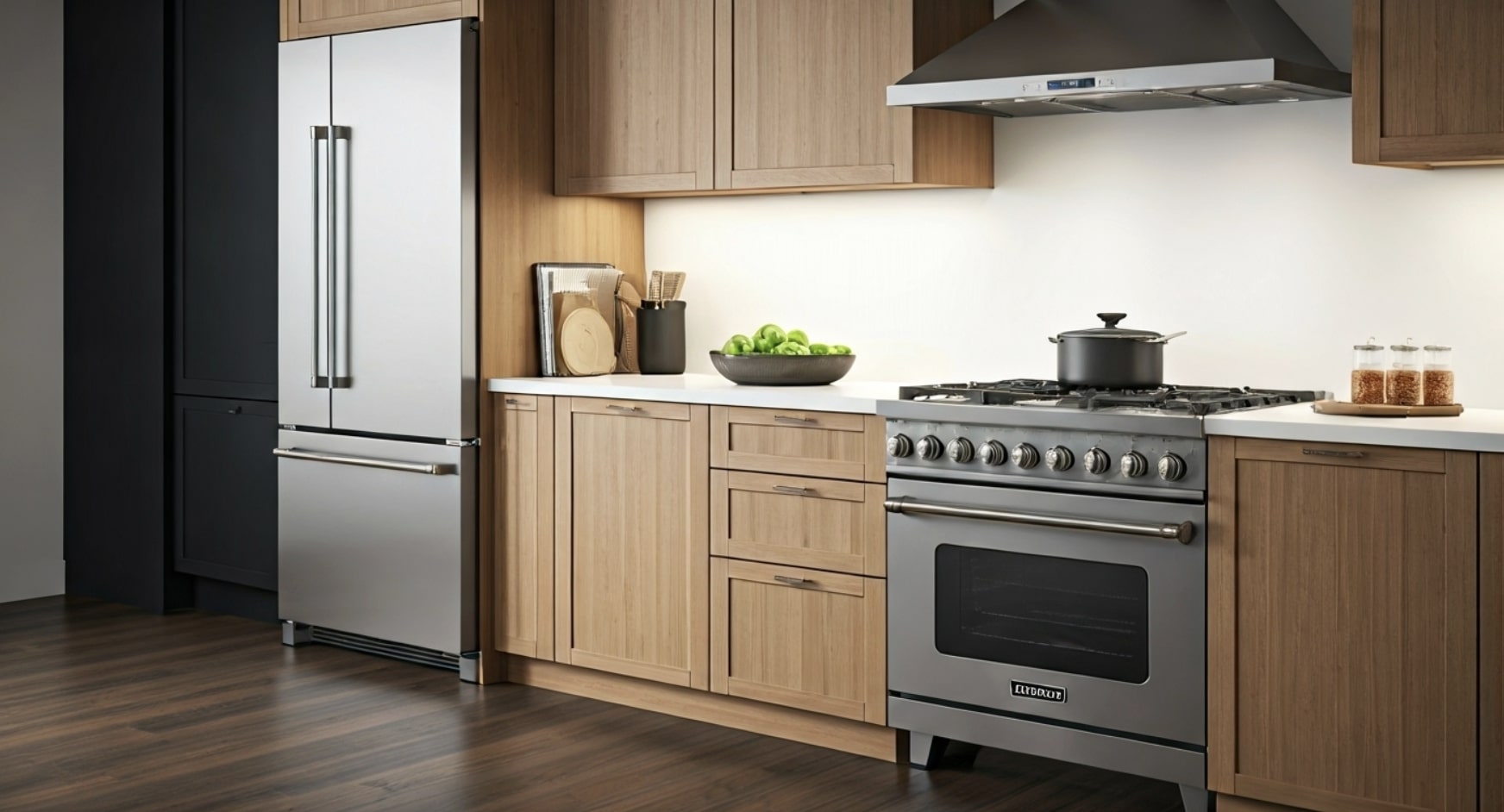Hiring professional house cleaning services can be a fantastic way to reclaim your time and enjoy a spotless home. But how do you make sure you’re getting a fair deal? The cost can vary widely, and negotiating the hourly rate might feel intimidating. Don’t worry—it’s entirely possible to find a price that works for both you and your cleaner. This guide will walk you through eight simple steps to confidently negotiate fair house cleaning rates per hour and hire the right service for your needs.
Table of Contents
Toggle1. Know the Going Rates in Your Area
Before you start talking to a cleaning service, it’s smart to understand the typical house cleaning rates in your city. Prices can change a lot depending on your zip code. For example, the cost of house cleaning in a major city like Washington D.C. will likely be higher than in a suburban town. Nationally, the hourly rate for professional companies can range anywhere from $25 to $80. Doing a little online research will give you a solid baseline and help you know if a quote is reasonable.
Knowing the average hourly rate in different locations gives you valuable context. While these figures are averages, they provide a strong starting point for what to expect from a cleaning service. Here’s a quick look at average rates in a few states to show you how much location matters.
| State | Average Hourly Cleaning Rate |
|---|---|
| California | $21.47 |
| New York | $19.12 |
| Colorado | $19.41 |
| Texas | $17.45 |
| Florida | $17.05 |
2. Understand What Affects the Rate
Several factors influence how much a cleaner may charge for their services, and understanding these can help both customers and cleaners set fair expectations.
- Experience and Expertise: Cleaners with extensive experience or specialized skills often command higher rates. For example, someone trained in using eco-friendly cleaning products, handling delicate surfaces, performing deep cleans, or managing post-construction cleanups brings added value. Their expertise ensures a thorough, efficient job and often results in a higher level of satisfaction. Such professionals may also be insured and bonded, providing peace of mind for clients.
- Supplies and Equipment: Whether the cleaner supplies their own products and equipment can affect the price. Cleaners who bring professional-grade tools and eco-friendly or hypoallergenic products typically charge more to cover these costs. Clients who require specific cleaning agents for allergies or prefer green cleaning solutions should expect a potential price adjustment.
- Home Size and Condition: The size and state of the property are major pricing factors. Cleaning a small, tidy apartment usually costs less than cleaning a large, multi-bedroom home—especially if that home includes pets, children, or high-traffic areas. Similarly, if a space is cluttered, has accumulated grime, or requires extra attention (such as stain removal or cleaning after events), the cleaner may need more time and effort, which increases the fee.
- Frequency of Service: Regularly scheduled cleaning services—such as weekly, bi-weekly, or monthly visits—often cost less per session compared to one-off deep cleans. This is because ongoing maintenance keeps the property in better shape, requiring less intensive work each time. Many cleaners offer discounts or packages for frequent clients.
- Location and Travel: The location of the property can affect rates as well. Cleaners may charge more if the property is outside their usual service area or if parking, tolls, or transportation are particularly challenging.
- Additional Services: Extras such as window washing, appliance cleaning, laundry, organizing, or handling hazardous materials (like mold or pet accidents) can add to the total cost. Clients should clarify which services are included and which are considered add-ons.
In summary, cleaning rates are determined by a combination of expertise, supplies, home size and condition, frequency of service, location, and any extra tasks requested. Clear communication between the client and cleaner about expectations and needs helps ensure a fair arrangement for both parties.
3. Start with a Clear Job Description
When seeking cleaning services or arranging for household help, it’s important to provide clear details about your needs. Here are some key questions to consider:
- How many rooms need to be cleaned? This includes specifying the number of bedrooms, living areas, and any additional spaces like offices or playrooms.
- How many bathrooms are there? The number of bathrooms can affect the time and supplies required for a thorough cleaning.
- Are there pets in the home? If yes, cleaners may need to use pet-safe products or pay extra attention to areas with pet hair and dander.
- Is laundry, dishwashing, or general organizing required? Clarifying whether you need help with these tasks can help ensure that your expectations align with the services provided.
- Do you have a preferred cleaning method or product? Some homeowners prefer eco-friendly or hypoallergenic cleaning supplies. Letting your cleaner know your preferences ensures your home is cleaned to your standards.
By answering these questions, you can communicate your expectations more effectively, helping the cleaning professional prepare appropriately and provide the best possible service. This information also allows for more accurate pricing and scheduling.
4. Ask for Their Rate First (Then Negotiate)
In any negotiation, it’s a good strategy to have the other party name their price first. When you get a quote from a cleaning service, ask for a breakdown of their house cleaning rates. Is it an hourly rate or a flat fee? What does that price include? This gives you a starting point. Once you have their number, you can compare it to the average rates you researched for your area and the other quotes you’ve received.
If the quoted hourly rate seems high, this is your opportunity to negotiate. You can say something like, “Thank you for the quote. My research showed the average cost of house cleaning in our area is a bit lower. Is there any flexibility in your rate?” By grounding your negotiation in the research you’ve done, you appear informed and reasonable. This approach is much more effective than simply asking for a discount without any context.
5. Be Honest—and Respectful—About Your Budget
Transparency can go a long way in finding a fair price for house cleaning. If a cleaner’s initial quote is outside your budget, don’t be afraid to say so. A professional cleaning service would rather work with you to find a solution than lose your business entirely. Be upfront about what you’re hoping to spend, but always do so with respect for their time and labor.
You could explain your budget and ask if there’s a way to adjust the scope of the cleaning to meet your price point. For instance, perhaps they could clean fewer rooms or focus only on the bathrooms and kitchen. This creates a collaborative conversation rather than a confrontation over house cleaning rates. Many cleaners are willing to customize a plan, allowing you to get the help you need while staying within a comfortable cost of house cleaning.
6. Consider Flat Rates for Predictability
While negotiating an hourly rate is common, don’t overlook the benefits of a flat-rate pricing model. Many house cleaning services offer a set price for the entire job, which provides excellent predictability for your budget. You’ll know the exact cost of house cleaning upfront, with no surprises if the job takes a little longer than expected. For a standard cleaning, flat rates often fall between $120 and $280.
This pricing structure can be a great point of negotiation. If you’re worried about a high hourly rate, ask if the cleaning service offers a flat fee instead. Clients often prefer this method because it simplifies budgeting. It also incentivizes the cleaner to work efficiently. Discussing this option can help you arrive at fair house cleaning rates that make you feel confident in your decision, removing the uncertainty of a ticking clock.
7. Don’t Forget to Factor in Trust and Reliability
When seeking a service provider or hiring someone to work in your home, certain qualities are especially important to ensure a positive experience.
- Being punctual and reliable means that the individual consistently arrives on time and can be depended upon to fulfill their commitments without unnecessary delays or cancellations. This builds trust and demonstrates respect for your schedule.
- A communicative professional keeps you informed throughout the process, addressing any questions or concerns promptly and clearly. Effective communication helps prevent misunderstandings and ensures that both parties are aligned on expectations.
- Thoroughness and consistency reflect an attention to detail and a commitment to maintaining high standards in every aspect of their work. A thorough approach ensures that no corners are cut, while consistency guarantees the same level of quality each time the service is provided.
- Finally, being trustworthy with your home and belongings is crucial. You need to feel comfortable allowing someone access to your personal space, confident that they will treat your property with respect and integrity. Trustworthiness encompasses honesty, discretion, and a sense of responsibility, providing you with peace of mind while the work is being done.
Together, these qualities—punctuality, reliability, strong communication, thoroughness, consistency, and trustworthiness—form the foundation of a professional relationship built on mutual respect and confidence.
8. Seal the Deal with Clear Expectations
When considering service agreements, it’s important to understand the differences between an hourly rate and a flat rate, as well as what is included in each visit, the payment schedule, and the cancellation policy.
- Hourly Rate vs. Flat Rate: An hourly rate means you pay for the actual time spent on the service. This can be beneficial if you anticipate that tasks may vary in length or complexity. On the other hand, a flat rate is a fixed price for a specific job or visit, regardless of how long it takes. Flat rates can offer more predictability in budgeting because you know exactly what you’ll pay upfront.
- What’s Included in Each Visit: Service providers should clearly outline what is covered during each visit. For example, this might include labor, materials, travel expenses, or specific services (such as cleaning certain rooms or performing maintenance tasks). Make sure to review these details so you understand which tasks are completed during each appointment and whether there are any additional costs for extra services.
- Payment Schedule: The payment schedule specifies when payments are due—whether at the time of service, weekly, monthly, or upon completion of all work. Some providers require a deposit before starting work; others bill after each visit. Understanding your payment obligations ensures there are no surprises and helps with financial planning.
- Cancellation Policy: A cancellation policy explains the terms under which appointments can be rescheduled or canceled. It may include deadlines for notice (e.g., 24 hours before a scheduled visit) and potential fees for late cancellations or missed appointments. Reviewing this policy ahead of time helps avoid unnecessary charges and clarifies your flexibility should your needs change.
By understanding these key elements—rate structure, included services, payment schedule, and cancellation terms—you can make informed decisions and ensure a smooth working relationship with your chosen service provider.
Conclusion
Negotiating fair house cleaning rates per hour can seem daunting, but with the right information and approach, it can be a smooth process. Understanding local rates, what influences pricing, and being transparent about your budget are key steps that empower you in this negotiation. Remember to clearly define your expectations and build a relationship based on trust with your cleaner. These practices not only ensure you get the best value for your money but also create a positive experience for both parties involved.
For more tips and insights on related topics, feel free to check out our blog on Why Vacation Rental Cleaning Standards Can’t Be Ignored!
Frequently Asked Questions
How much should I expect to pay per hour for basic house cleaning?
For basic house cleaning, you can expect to pay a wide range. Independent cleaners often charge between $15 and $25 per hour. A professional cleaning service with insured employees will typically have an hourly rate between $25 and $80, reflecting their overhead costs and the protections they offer.
What factors influence house cleaning rates per hour?
The primary factors influencing the hourly rate for house cleaning include your geographic location, the size and layout of your home, the number of bedrooms and bathrooms, and the frequency of the cleaning. The type of cleaning—such as a standard versus a deep clean—will also significantly impact the cost of house cleaning.
Are there different hourly rates for house cleaning in San Jose versus other cities?
Yes, house cleaning rates vary significantly from one city to another. A high-cost-of-living area like San Jose will almost certainly have a higher hourly rate than less expensive cities. Factors like local wages and demand for house cleaning services mean that you should always research prices specific to your area.
How do house cleaning hourly rates compare between independent cleaners and cleaning companies?
Independent cleaners generally have lower house cleaning rates, often ranging from $12 to $25 per hour. Professional cleaning companies charge more, typically $25 to $80 per hour, because their price includes insurance, bonding, background-checked staff, and other overhead costs that provide greater security for the homeowner.
Does the size of my home affect the hourly rate for cleaning services?
Generally, the size of your home affects the total cost of the cleaning service rather than the hourly rate itself, as a bigger home requires more hours to clean. However, some companies may offer a slightly lower hourly rate for very large homes or charge a bit more per hour for small, cluttered spaces.







